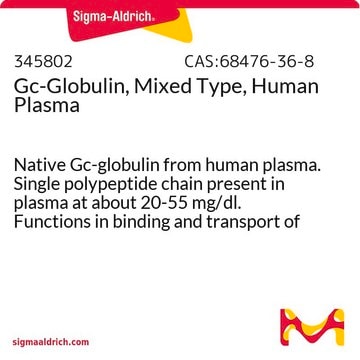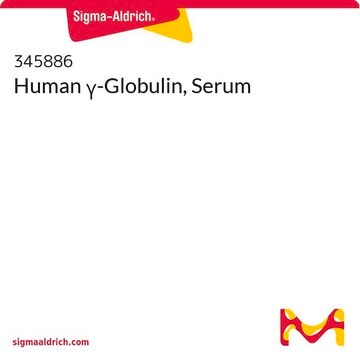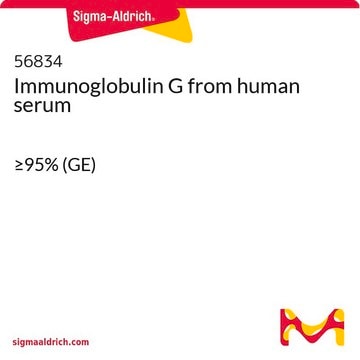G4386
γ-Globulins from human blood
≥99% (electrophoresis)
Sinónimos:
Human γ-Globulin
About This Item
Productos recomendados
biological source
human blood
assay
≥99% (electrophoresis)
form
powder
technique(s)
protein quantification: suitable
impurities
HIV, HCV and HBsAg, source material tested negative
≤4% NaCl
solubility
0.9% NaCl: soluble 50 mg/mL
UniProt accession no.
storage temp.
2-8°C
Gene Information
human ... IGLL1(3543)
¿Está buscando productos similares? Visita Guía de comparación de productos
General description
Application
Biochem/physiol Actions
Preparation Note
Disclaimer
Storage Class
11 - Combustible Solids
wgk_germany
WGK 3
flash_point_f
Not applicable
flash_point_c
Not applicable
Certificados de análisis (COA)
Busque Certificados de análisis (COA) introduciendo el número de lote del producto. Los números de lote se encuentran en la etiqueta del producto después de las palabras «Lot» o «Batch»
¿Ya tiene este producto?
Encuentre la documentación para los productos que ha comprado recientemente en la Biblioteca de documentos.
Los clientes también vieron
Nuestro equipo de científicos tiene experiencia en todas las áreas de investigación: Ciencias de la vida, Ciencia de los materiales, Síntesis química, Cromatografía, Analítica y muchas otras.
Póngase en contacto con el Servicio técnico











